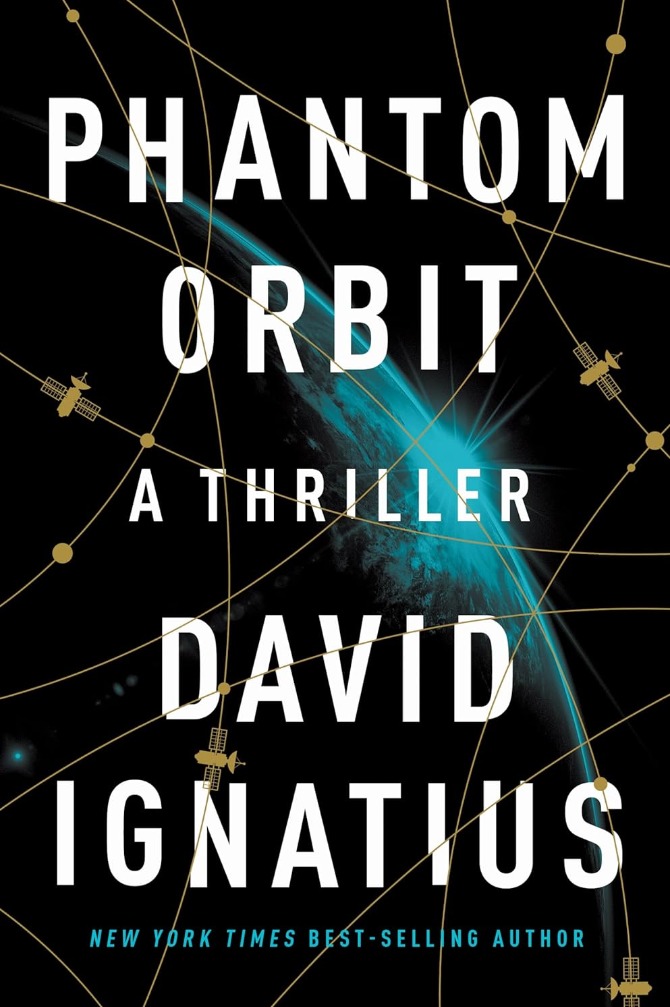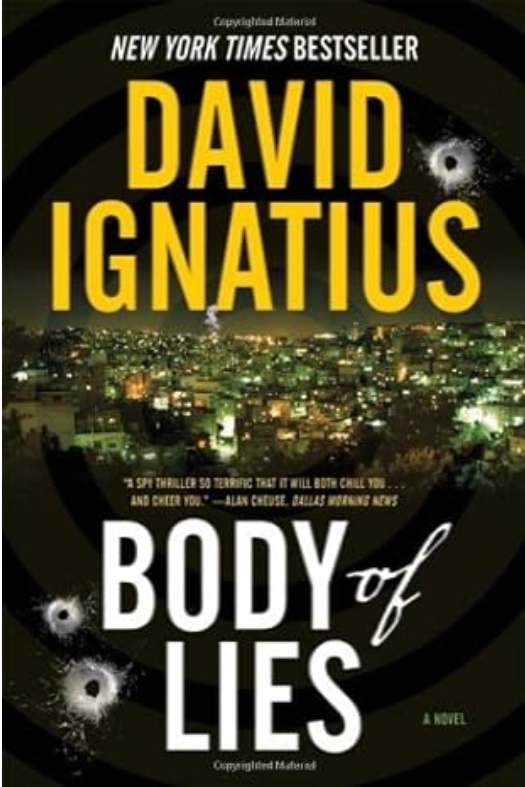Thanks to decades of science fiction action tales, most people view satellite warfare as something akin to the Empire’s Death Star launching a beam of massive energy at an unsuspecting planet below. But the reality is more mundane but potentially almost as catastrophic. The world relies on an array of communication satellites like the United States GPS system. Disrupt that system, and the result could be chaotic. That’s the premise of David Ignatius’ new political thriller, Phantom Orbit. The book is a fascinating read once the novel gets into orbit in its last quarter. But the time it takes to reach orbit in its first 300 pages can, at times, resemble watching a lengthy NASA countdown.
Phantom Orbit follows the lives and careers of its three main characters over a quarter century from 1996 to the Ukrainian War present day of 2022. Ivan Volkov is a brilliant Russian physics student who goes to China for graduate school.
There, he meets a Chinese scientist, Cao Lin, who became the mentor of the Russian student. He also meets a young American student, Edith Ryan. Edith rebuffs Ivan’s advances because she is a fledgling CIA agent looking to recruit him. Eventually, they return to their native countries and embark on their careers.
Some 25 years later, Ivan is a scientist at a prestigious Russian Space Research Institute. He has soured on both his native Russia and China, but he remains fascinated by GPS and other global positioning satellite networks. He suspects Cao Lin has detected a weakness in the American system and is waiting for an opportune time to exploit it. So, Ivan reaches out to the only American contact he knows, Edith, who left him an address card when they parted ways years earlier.
The rest of Phantom Orbit is a primer on 21st-century spycraft. Ivan’s message to Edith was necessarily cryptic, but worrisome enough to convince the CIA to arrange a meeting. From there, they must figure out a way to get Ivan out of the country so they can debrief him. Ivan’s information could be invaluable, but it also could be a Russian disinformation effort meant to mislead the Americans. And by now, Russia has invaded Ukraine. The Ukrainian forces rely on GPS information supplied by the United States, so its loss could be fatal to the war effort. But getting Ivan out of Russia in a time of war becomes challenging.
The last 50 pages of Phantom Orbit are as suspenseful as you’ll find in the best modern-day espionage fiction. There are no car chases or shootouts, but readers will see how covert operations work. David Ignatius is an award-winning journalist for the Washington Post, who is an expert on CIA operations. He has extensively researched the science behind “Phantom Orbit,” so the book’s central hypothesis is chillingly plausible. Ignatius has the rare ability to describe the book’s scientific basis in terms the average reader can understand without bogging the story down with wonky information dumps.
However, Ignatius makes a serious mistake in the book’s first 300 pages. He could have set the stage in a short prologue that introduced the main characters and filled in other essential details in flashbacks. Instead, he tries to cover the lives and careers of the three main characters over 25 years. The result is both too fragmented and too detailed. Ivan disappears from the storyline entirely from the late 1990s until almost the present day. Since he was the book’s main character until this time, his absence from the narrative leaves a void. The emphasis then shifts to Edith’s career as a CIA operative. This includes a lengthy discussion of a #MeToo incident in which Edith was assaulted by a superior during her first assignment. This incident and its resolution will probably interest readers and strike them as especially timely in today’s workplace environment. But they have nothing to do with the main storyline or Edith’s actions once Ivan contacts her after a lengthy absence.
As readers navigate the first 300 pages of Phantom Orbit, they will probably wonder when the author will get to the “good stuff.” We learn a good bit about the history of Ivan, Cao Lin, and Edith, but they aren’t interesting characters. Much of what we learn is irrelevant, trivial, or both. Ivan fields various job offers and recruitment pitches during his stay in China, none of which make for exciting reading. Then, he disappears from the narrative for over 100 pages and 20 years. The bits and pieces readers learn about Ivan’s interest in GPS systems hint at the ultimate central storyline, but they aren’t interesting enough to keep readers eager to learn more. This makes for 300 pages of a thriller that’s nearly lacking in thrills.
The eventual payoff is worth the wait for genre fans. The book’s last 50 pages would make a nifty novella. Ignatius also gives most readers some valuable insight into the operation of GPS and similar satellites. However, readers shouldn’t have to rely on the assurances of a reviewer that slogging through dozens of pages of dull material will lead to an exciting conclusion. That’s especially true when the conclusion has little to do with much of that dull material. I’m giving Phantom Orbit a three-star rating and the mildest of recommendations, more for the value of the author’s research than the story itself.
NOTE: The publisher graciously provided me with a copy of this book through NetGalley. However, the decision to review the book and the contents of this review are entirely my own.
Watch David Ignatius discuss Phantom Orbit at the Politics and Prose bookstore:
Read other reviews of Phantom Orbit:
David Ignatius is a prize-winning columnist for the Washington Post and has been covering the Middle East and the CIA for nearly four decades. He has written several New York Times bestsellers, including Agents of Innocence, Body of Lies, and The Increment. He lives in Washington, D.C.
Header Photo: "Riot Radio" by Arielle Calderon / Flickr / CC By / Cropped
Silver Screen Videos Banner Photos: pedrojperez / Morguefile; wintersixfour / Morguefile
Join Button: "Film Element" by Stockphotosforfree
Twitter Icon: "Twitter Icon" by Freepik
Facebook Icon: "Facebook Icon" by Freepik
LinkedIn Icon: "LinkedIn Icon" by Fathema Khanom / Freepik
Goodreads Icon: "Letter G Icon" by arnikahossain / Freepik
Certain images on this site appear courtesy of Amazon.com and other sponsors of Silver Screen Videos for the purpose of advertising products on those sites. Silver Screen Videos earns commissions from purchases on those sites.
© 2024 Steven R. Silver. All rights reserved.







